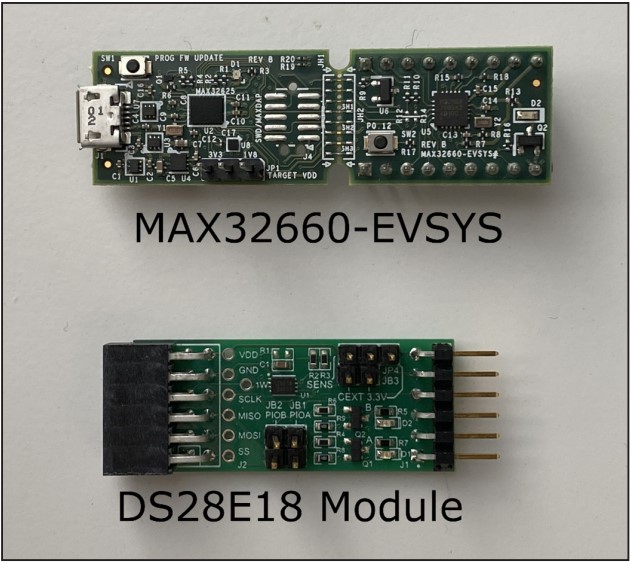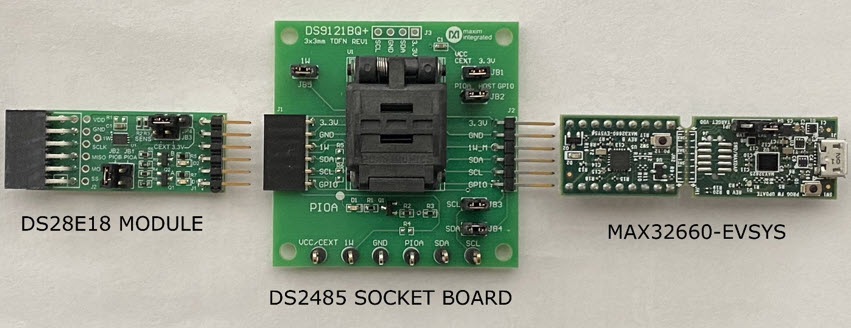The DS28E18 is a simple communications bridge that resides at a remote SPI or I2C sensor and allows the sensor to be controlled by just two wires coming from the host system. It reduces the wire count from six (for SPI) or four (for I2C). These two wires use Analog Devises' 1-Wire protocol that combines power and signal on a single wire, and which is driven by the programmable I/O pins on the host's microcontroller. The 1-Wire network supports connection lengths up to 100m and 10 sensor nodes or more.
The IC provides a 512-byte command sequencer in SRAM that can be loaded with multiple I2C or SPI commands. Once loaded, the host controller sends a command to execute the sequence, power, and collect data from attached I2C or SPI peripherals. A subsequent 1-Wire command reads collected data. Power for attached sensors or peripherals is sourced from the 1-Wire line making the DS28E18 a very efficient solution to remotely power and control complex I2C or SPI devices such as sensors, ADCs, DACs, and display controllers.
When used as a bridge for I2C slave devices, the DS28E18 communicates at Standard mode (100kHz), Fast mode (400kHz) or Fast-mode Plus (Fm+, 1MHz). In SPI mode, multiple clock rates are supported up to 2.3MHz. Configuring for I2C or SPI operation is performed with a 1-Wire command; I2C is the power-on default. When operating in I2C mode, two programmable GPIO pins are available for additional peripheral control.
Each DS28E18 provides a unique and secure 64-bit ROM identification number (ROM ID) that serves as the device's address on the 1-Wire bus. Multiple DS28E18 devices can coexist with other devices in a 1-Wire network and be accessed individually without affecting other devices.
Applications
- Accessory Identification and Control
- Equipment Configuration and Monitoring
- Examining Environmental Conditions
- Grain Elevator Monitoring








